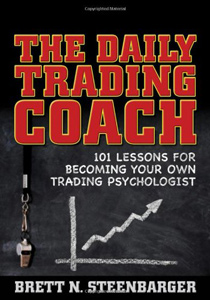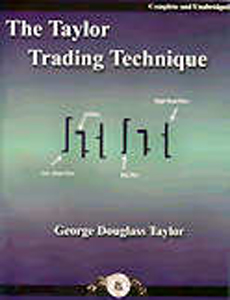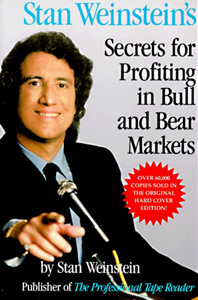Efficient-Market Hypothesis
Further Reading
The theory of efficient-market hypothesis (EMH) argues that the financial markets are efficient and the price of stocks constantly reflects all the available information. EMH suggests that no particular investor has access to any information that is not available to other traders. Therefore, a trader cannot make profit at the expense of another. According to EMH, the stock price usually will stay around its original value and even if the price goes up or falls down, the advocate of EMH will say that the price of that particular share is random and not possible to forecast or exploit for making profit.
For some people, the idea of EMH is not a very pleasant one. The theory argues that the traditional way of selecting stocks on the basis of expert forecasting, financial status of the company, trends or news is simply pointless. It also argues that the practice of investigating whether the shares of a company is under or over valued in comparison with its current market price is also not an effective trading strategy and discourages traders to rely on the prevailing trends for buying and selling shares.
Although the efficient-market hypothesis (EMH) has been heavily criticised by many since it was introduced by Professor Eugene Fama during the late 1960s, the theory still has its impacts on the investment world, particularly in the United States.
The active fund manager is considered as the largest grip of advocates of efficient-market hypothesis. Usually the active fund managers will try to make the best use of the market inefficiencies to make profit while professor Fama’s theory suggests that the market is efficient. Because of their expertise on choosing the right stocks to beat the market, the active managers get premium from the investors along with the extra brokerage gained through active management.
Arguments in Support of Efficient-Market Hypothesis
People who back the efficient-market hypothesis argues that only the managers gain superior return from active management. In support to their theory, they refer to the empirical evidence which revels that most of the active managers under perform the market and in most cases in the long run. They also claim that the average traders would have very little chance to come up with a better result if the leading fund managers were not being successful to beat the market at a regular basis. And if it is not possible to outperform the market, then the best option would be to join it by investing in an index or exchange traded funds (ETF) - something that tracks the performance of the market. The efficient-market theory suggests that instead of spending more time over charts, stock quotes and financial news, the traders should concentrate more on analysing those things as the asset allocation of their portfolio on the basis of their tax bracket and risk profile.
However, question may arise in extra ordinary conditions where a particular political or economic development hits the market hard enough to see it tumbling down in a matter of hours. Should we still consider the market efficient?
Inefficient market and the response of EMH
Often the critics of EMH will refer to the scenarios where the market is not efficient, allowing smart traders to make fortune out of the market by outperforming it at a regular basis where many other traders will simply wonder how on earth they are managing to do that. The question may rise how the theory of EMH would stand up in such cases?
The efficient-market hypothesis refers to the market corrections as anomalies. It sees these fortune making short-lived events as the random incidents happening in the market that cannot be predicted accurately through any kind of investment strategy. The supporters argue that the cost of transaction to go for new investment often offset the gain. So the question is- is this only luck that allowed the hedge fund managers to make billions of dollars worth of profit through their trades or is there some other secrets lying beneath these success stories?
As far as the theory of efficient-market hypothesis is taken under consideration, it is said that it would simply disappear if everyone starts believing in it. Now how is that going to happen? Well let’s take a scenario to have a clear understanding about it. Say for example if all the traders starts buying the index funds and ignores that data and latest news of the stock exchange, then in the long run shares will start deviate further from their actual value. This means the market will become more inefficient, which will give the smarter traders more speculative opportunities.
Glossary List- How to Trade Forex and Gold Options
- How to Trade the Gold Price and Profit!
- Forex Trading the EUR/USD Pair € EURO and $ US Dollar
- How to Trade Stock Market Indices S&P500
- How to Trade Crude Oil
- Forex Trading Psychology
- What Are Broker Recommendations?
- Free Tickets to Trading & Investing Seminar & Expo ($18) Brisbane 2013
- Stock Calc App
- All About Warrants
- Introduction to Exchange Traded Funds
- Introduction to Exchange Traded Funds: Features
- Introduction to Exchange Traded Funds: Domestic ETFs
- Introduction to Exchange Traded Funds: International ETFs
- Exchange Traded Commodities
- Australian Stock Scan
- Australian Online Share Trading
- List of Trading Books
- Interesting Thoughts about the Australian Dollar
- What's the Meaning of Hawkish?
- Do You Know How To Use the P/E Ratio
- Trading, Religion and Politics - Do They Have Anything in Common?
- Shares that are Volatile that Double and Half in the Short Term
- Telstra (TLS) T3
- Margin Call by E-mail
- The Cost of Holding a Position
- Lack of Disclosure: Compensation from ASX Listed Company
- Unrealistic Returns and Benchmarks
- CMC Markets Down
- Quality versus Quantity Forex Trading
- Woolworths 1H Sales $30.7bn up 3.2%
Date added 31-01-2013 - ASIC Fines CommBank's CommSec
Date added 25-09-2012 - Industry Super Network Calls to Ban High Frequency Trading (HFT)
Date added 22-09-2012 - NAB Launches Online Share Trading Platform
Date added 19-09-2012 - Reserve Bank of Australia Says 23 Countries Holding AUD
Date added 18-09-2012 - Australia Post Digital Mailbox
Date added 10-09-2012 - Winners and Losers of Trading for Week 2
Date added 16-01-2012 - 2012's First Week of the Best and Worst Traded Stocks
Date added 09-01-2012 - 2011's Last Best and Worst Traded Stocks
Date added 05-01-2012 - Best and Worst Pre-Christmas Traded Stocks
Date added 30-12-2011 - Trading Winners and Losers for Dec. 12-16
Date added 19-12-2011 - Best and Worst Traded Stocks for Dec. 5-9
Date added 13-12-2011 - Top 3 Best and Worst Traded Stocks
Date added 05-12-2011 - ASX Glitch Trading Halt
Date added 27-10-2011 - Worst Trade Stocks (and the Best)
Date added 06-08-2011
Top 150 Public Companies Listed on the Australian Stockmarket as at 29/05/2009
- BHP Billiton
- Westpac Banking Corporation (WBC)
- Commonwealth Bank of Australia (CBA)
- National Australia Bank (NAB)
- Telstra (TLS)
- ANZ
- News Corporation (NWS)
- Woolworths Limited(WOW)
- Woodside Petroleum Limited (WPL)
- Rio Tinto
- Westfield Group (WDC)
- Westfarmers Limited (WES)
- QBE Insurance
- CSL
- Newcrest Mining Limited (NCM)
- Origin Energy Limited (ORG)
- Santos Limited (STO)
- AMP Limited (AMP)
- Macquarie Group (MQG)
- Foster’s Group Limited (FGL)




